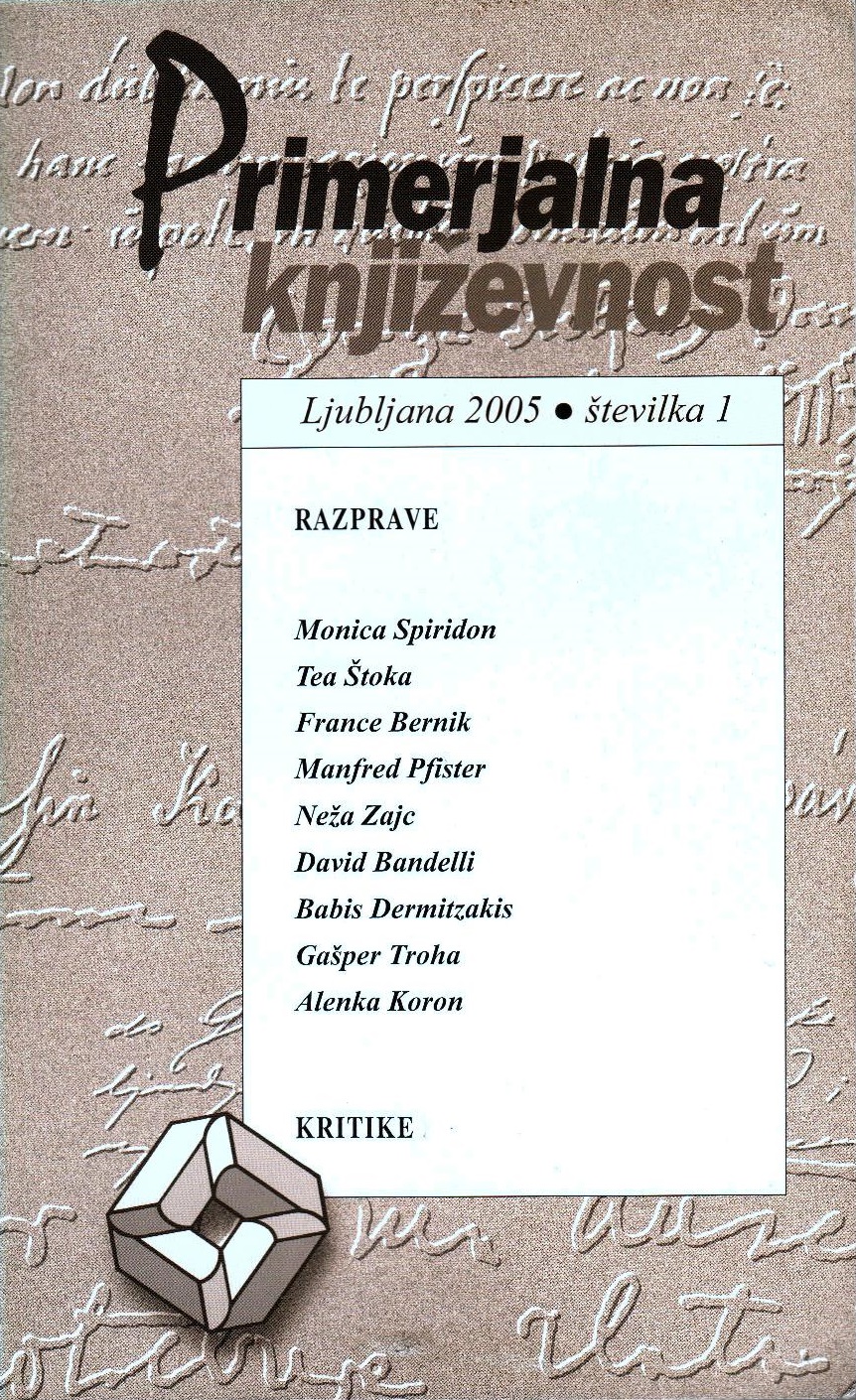The Beginnings of Autobiographical Writing in Western Europe and Russia (Augustine’s Confessions and The Life of the Archpriest Avvakum)
Keywords:
autobiography, autobiographical literature, medieval literature, Augustinus, AureliusAbstract
The study looks at the rise of the autobiographical genre. Augustine’s Confessions and The Life of the Archpriest Avvakum are regarded as the first works of this genre in Western Europe and Russia respectively, and are therefore presented in detail, that is, with an emphasis on their autobiographical characteristics and on the attempt at possible comparisons (allowing for the temporal, historical and cultural disparities of the two texts). It is difficult to define the characteristics typical of the genre in question, although it seems we can follow them throughout the history of literature. The genre of The Life is described, as well as the particularities of Confessions and their placement in the literary and cultural context, pointing to their crucial position in the development of literature in general. References to the words of the Church Fathers and the use of Biblical quotation (either direct and open, or transformed and hidden) typical of both authors, and their indirect influences on later literary production (to the present day) are emphasized. The relationship of the authors to language is also shown: it is important that with his style Avvakum incorporates elements of the Russian vernacular into his Russian adaptation of Old Church Slavonic. Thus he introduced a special type of literary language, which influenced the subsequent development of the Russian written language. The comparison of form and subject matter in both texts unexpectedly reveals some interesting similarities, because both authors deal with similar issues, such as the question of the links between personal experience, weather phenomena and God’s will. However, there is a fundamental difference between the writers – Augustine discusses abstract themes, whereas Avvakum’s circumstances in life are such that he has to fight for his existence. This is followed by an attempt to analyze the complex relationship between the author and the hero. The author’s relation to the recipient in both cases breaks up into a relation to the reader and to the highest authority, God. Both writers also ponder transience, memory etc., and therefore their relationship towards time is described. On the basis of M. M. Bakhtin’s dual classification of (auto)biography it is established that both works are closer to the adventurous-heroic type, although The Life of the Archpriest Avvakum also contains characteristics of everyday social autobiography. The autobiographical elements of both works, which define the beginnings of the formation of the autobiographical genre, are established. On the basis of similarities in the thinking of both authors conclusions are inferred regarding the birth of a new type of self-awareness and mode of expression, which signifies an important shift in the development of literature and human (cultural) consciousness in general.References
Linda ANDERSON, 2001: Autobiography. London in New York: Routledge.
AVVAKUM, 1994: Žitje protopopa Avvakuma, žitje inoka Epifanija, Žitje bojaryni Morozovoj. Zbirka: Drevnerusskie skazanija o dostopamjatnyh ljudjah, mestah sobytijah. Ur. G. Prohorov. Sankt Peterburg: Glagol’.
C. C. AVERINCEV, 1997: Poetika rannevizantijskoj literatury. Glavnaja redakcija vostočnoj literatury. Moskva. Izd. Nauka.
Avrelij AVGUŠTIN, 1984: Izpovedi. Zbirka: Cerkveni očetje, 3. Celje: Mohorjeva družba.
Avrelij AVGUŠTIN, 1991: Izpovedi. Zbirka: Cerkveni očetje, 4. Celje: Mohorjeva družba.
Avrelij AVGUŠTIN, 2003: Izpovedi. Zbirka: Cerkveni očetje, 4. Celje: Mohorjeva družba.
Avrelij AVGUŠTIN, 2003a: O svobodni izbiri. Ljubljana: Temeljna dela. Krtina.
Mihail M. BAHTIN, 1982: Teorija romana (izbrane razprave). Ljubljana: Cankarjeva založba.
Mihail M. BAHTIN, 1999: »Celost junaka kot celost smisla.« Estetika in humanistične vede. Ljubljana: Studia humanitatis. Spr. beseda: A. Skaza in M. Javornik.
Henry CHADWICK, 1986: Avgustine, A Very Short Introduction. New York: Oxford University Press.
Marko JUVAN, 2002: »Žanrska identiteta in medbesedilnost.« Primerjalna književnost 25/1. 9–26.
E. L. KONJAVSKAJA, 2000: Avtorskoe samosoznanie drevnerusskogo knižnika (XI–seredina XV v.). Moskva: Jazyky russkoj kul’tury.
Arpad KOVACS, 1994: Personal’noe povestvovanie. Puškin. Gogol’. Dostoevskij. Frankfurt: Peter Lang.
Philippe LEJEUNE, 1982: »The Autobiographical Contract.« French Literary Theory Today.Tzvetan Todorov. Cambridge: Cambridge University Press.
Dmitrij S. LIHAČEV, 1967: Poetika drevneruskoj literatury. Leningrad: Izd. Nauka.
Dmitrij S. LIHAČEV, 1970: Čelovek v literature drevnej Rusi. Moskva: Izd. Nauka.
Linda MARCUS, 1994: Auto/biographical Discourses. Manchester in New York: Manchester University Press.
Roy PASCAL, 1960: Design and Truth in Autobiography. Cambridge, MA, Harvard: Cambridge University Press.
Pavao PAVAČIĆ, 1983: Književna genologija. Zagreb: Sveučilišna naklada Liber.
N. V. PONYRKO, 1994: »Protopop Avvakum i istoričeskaja pamjat’.« Žitje protopopa Avvakuma, Žitje inoka Epifanija, Žitje bojaryni Morozovoj. Zbirka: Drevnerusskie skazanija o dostopamjatnyh ljudjah, mestah sobytijah.Ur. G. M. Prohorov. Sankt Peterburg: Glagol’. 1–16.
SLOVAR’ RELIGII NARODOV SOVREMENNOJ ROSSII, 1999: Rossijskij nezavisimyj institut social’nyh i nacional’nyh problem. Moskva: Izd. Respublika.
Boris. A. USPENSKIJ, 1994: »Otnošenie k grammatike i ritorike v Drevnej Rusi (XVI–XVII vv.).« Izbrannye trudy. Tom II. Moskva: Gnozis. 7–48.
Viktor V. VINOGRADOV, 1980: »O zadačah stilistiki. Nabljudenie nad stilem Žitija protopopa Avvakuma.« Izbrannye trudy. O jazyke hudožestvennoj prozy. Moskva: Izd. Nauka. 3–42.


